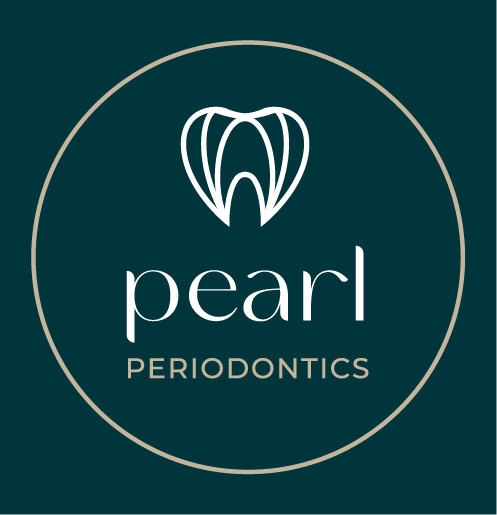What new research means for your gum health and your cardiovascular risk. Questions? Contact us at Pearl Periodontics to schedule a consultation.
Could Bad Breath Be a Warning Sign for Heart Health?

The Science Behind It
Most people think of bad breath (also called halitosis) as an embarrassing cosmetic issue. But researchers are increasingly seeing it may be a clue to something more serious: underlying gum disease and inflammation that may contribute to cardiovascular risks.
Studies now show that the bacteria living in your mouth don’t always stay there. Some oral bacteria associated with gum disease have been found in other parts of the body including blood, arterial plaques, even gut or non‑oral tissues.
In fact, one large population study found people with antibodies to Fusobacterium nucleatum -- a bacterium linked with gum disease and bad breath -- had a slightly increased risk of a cardiovascular event, like heart attacks, even after accounting for other known risk factors.
Chronic gum inflammation, an indicator of periodontal disease, is also implicated in systemic inflammation — meaning your immune system can be triggered by oral bacteria, which can lead to higher levels of inflammatory markers in your bloodstream. Over time, that inflammation can contribute to arterial plaque formation, hardening of the arteries, and other cardiovascular complications.
Regular visits to your periodontist at our clinic often include discussions on dietary support.

Power Up with Leafy Greens and Vitamin C
Leafy greens like spinach and kale are packed with folic acid and Vitamin C, which reduce inflammation and aid in tissue repair. Vitamin C, especially, is vital for collagen production in the gum tissue, helping it remain firm and resistant to infection. A lack of this nutrient can lead to bleeding or irritated gums.

Sip on Green Tea and Antioxidants
Green tea contains powerful antioxidants called catechins. These compounds actively fight the bacteria that cause plaque and gum disease, offering a protective boost to your entire mouth. We encourage our patients to replace sugary drinks with unsweetened green tea to support a healthy oral environment and overall well-being.
Understanding these dietary connections is key to long-term oral wellness. By incorporating these gum-friendly foods into your routine, you are taking proactive steps toward a healthier smile. If you are concerned about your gum health or need specialized treatment, Pearl Periodontics is here to offer compassionate, expert care. Learn how periodontist Dr. Brummerhop and our team can help you achieve optimal gum health by requesting an appointment today.
Get Started With Dr. Brummerhop Today
Contact Pearl Periodontics today!
